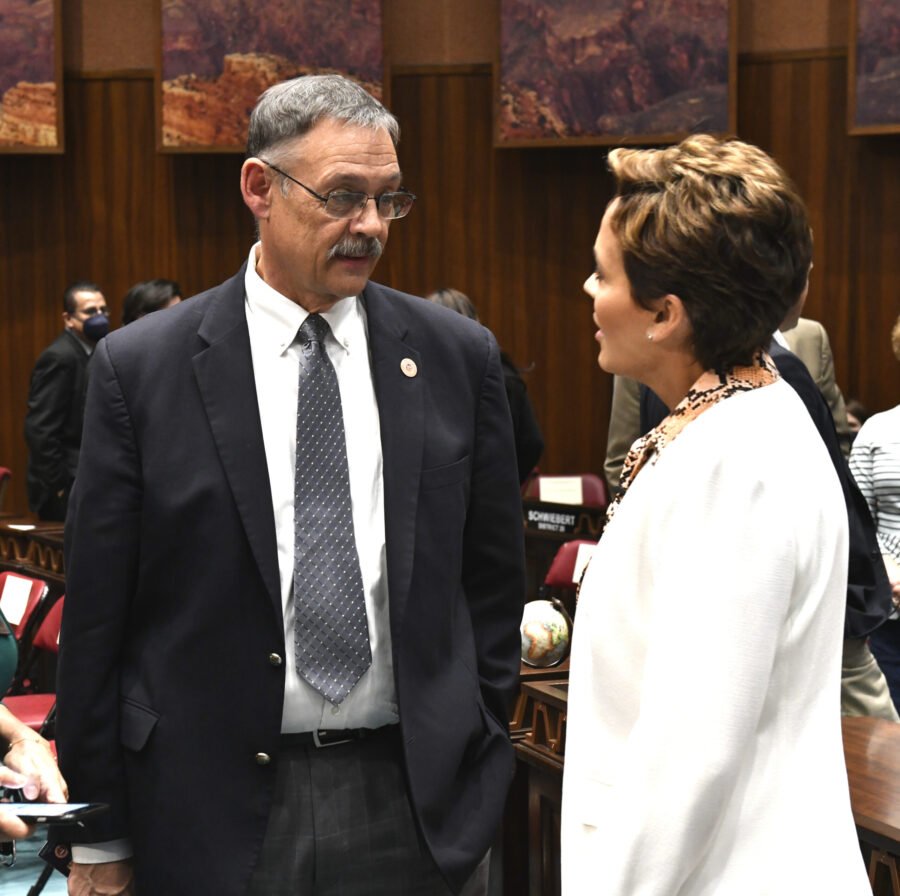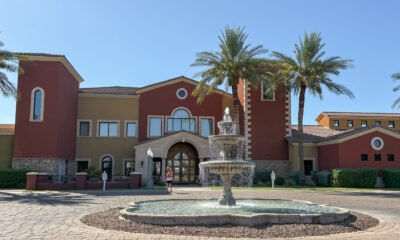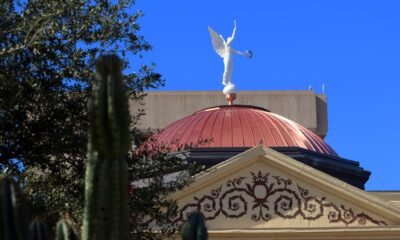courts
Attorneys Hit with $122,000 Fine for Frivolous Legal Battle in 2022 GOP Election Fraud Case

A recent ruling by a federal appeals court has determined that attorneys for Kari Lake and Mark Finchem must pay Maricopa County $122,000 in legal fees. The court characterized their challenge to Arizona’s voting machines as “frivolous.”
Judge Ronald Gould noted that lawyers Andrew Parker and Kurt Olsen made “false and misleading allegations” in their 2022 lawsuit, arguing that the voting machines lacked reliability and were vulnerable to manipulation. Their claims included a demand for the 2022 election—where Lake ran for governor and Finchem for secretary of state—to be conducted exclusively with hand-counted paper ballots.
Gould also highlighted that the attorneys misrepresented the facts by suggesting all Arizona voting was machine-based, despite most ballots being tabulated electronically from paper. U.S. District Court Judge John Tuchi, who initially dismissed the case, agreed that the lawsuit was based on “speculation and conjecture.”
The court emphasized that the sanctions aimed to address not only the lack of merit in the case but also the potential for public misinformation regarding a critical national issue.
Notably, the ruling was not unanimous. Appellate Judge Patrick Bumatay acknowledged that while the lawsuit may not have been precisely drafted, it did not warrant penalizing the lawyers for the county’s legal costs. He remarked that their actions were not intentionally deceptive.
Bumatay took issue with Judge Tuchi’s decision, suggesting that sanctions should not target litigants based on their political beliefs or discourage attorneys from representing unconventional viewpoints.
Lake and Finchem’s lawsuit alleged that the voting machines did not comply with constitutional standards for free and fair elections. They expressed concerns that components sourced from foreign countries made the systems susceptible to hacking.
U.S. District Court Judge Tuchi dismissed their claims, stating that they relied on a series of highly unlikely scenarios that would have to occur for any real harm to take place.
The 9th Circuit Court of Appeals upheld Tuchi’s ruling, finding that the plaintiffs failed to present any evidence of actual hacking of Arizona’s vote-counting machines. The Supreme Court declined to intervene.
However, the central query of whether the attorneys should face penalties for filing the lawsuit remained open. The lawyers contended that they were denied the chance to present expert testimony disputing the reliability of voting machines.
In dismissing their claims, Tuchi had identified several speculative assertions, including the presumption of security failures that could allow vote manipulation and procedural safeguards failing to detect such actions.
The attorneys argued that denying their clients a day in court contradicted legal principles and hindered challenges to electronic voting systems.
Gould defended the sanctions as measures to prevent misleading litigation that could exacerbate public fears over electoral integrity. He clarified that while the penalty was directed at Lake and Finchem’s attorneys, it was not a blanket prohibition against all voting-related lawsuits.
In a related decision, the appellate court invalidated a $12,200 sanction against Alan Dershowitz, who was only a consultant for Lake and Finchem. The court ruled that while Dershowitz had signed off on the pleadings, he should not be held financially liable for the frivolous nature of the case.
Gould acknowledged that this marked a significant moment, as it was the first time the 9th Circuit allowed sanctions against attorneys in advisory roles, reserving future applications of the ruling.


















